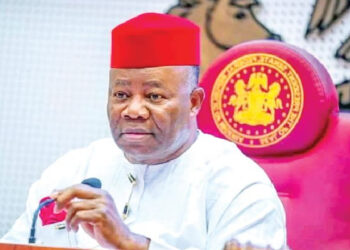The Central Bank of Nigeria’s (CBN) deadline for Bureau de Change (BDC) operators to meet enhanced recapitalisation requirements expired today, sparking urgent appeals from industry stakeholders for an extension to protect an estimated three million jobs and facilitate compliance with the new regulatory framework.
The Association of Bureau de Change Operators of Nigeria (ABCON), under the leadership of its President, Dr. Aminu Gwadabe, has called on the CBN to reconsider the deadline and review licensing conditions to avert mass unemployment and broader economic instability.
In May 2024, the CBN significantly raised the minimum capital thresholds for BDC operators, mandating Tier 1 licence holders to maintain ₦2 billion in share capital, while Tier 2 operators must now hold ₦500 million—a dramatic increase from the previous ₦35 million general licence requirement.
Acknowledging low adherence levels, the CBN granted a six-month extension in November 2024, moving the final deadline to **3 June 2025 to allow operators additional time to secure the necessary funds.
However, Gwadabe disclosed that fewer than 5% of licensed BDCs have met the revised capital requirements, leaving the sector in a state of uncertainty and prompting fears of widespread business closures.
“The way forward to mitigate this is an appeal for further extension and a deliberate review of the financial requirements as some members strive to achieve them,” Gwadabe emphasized.
Concerns Over Mass Job Losses and Economic Fallout
With the deadline now elapsed, industry stakeholders fear severe consequences for BDC operators who are unable to comply.
Gwadabe estimates that over three million jobs are now at risk due to the stringent capital requirements.
“The CBN should continue their stakeholder collaboration during the time of the extension to douse the anxiety, pressures, and tension currently enveloping the sector,” he urged.
ABCON has initiated several strategic measures to mitigate job losses, including:
Continued engagement with the CBN and relevant financial regulators.
Lobbying efforts to influence policy adjustments.
Encouraging mergers and investor acquisitions to help smaller operators meet financial thresholds.
Additionally, ABCON members are exploring alternative business models, including establishing public limited liability companies to enhance sector participation and inclusiveness.
Possible Market Adjustments
Gwadabe stated that proposals for mergers could allow operators to consolidate their businesses, with groups of five, ten, or more forming a single legal entity to meet the capital threshold.
“As earlier mentioned, we have also applied to the CBN for ‘No Objection’ on our plans to float a public limited liability company with the capacity to absorb many of our members, but we received a holding response from the CBN,” he explained.











































Discussion about this post